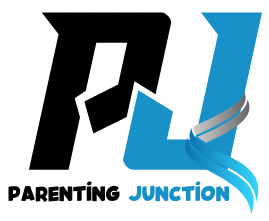Parenting is a lifelong journey that evolves as your child grows, presenting new challenges and joys at every stage. From infancy to adolescence, knowing what to expect and how to respond can make parenting smoother and more rewarding. Here are practical tips tailored to each major stage of your child’s development.
Infancy (0-12 months)
- Establish a Routine: Babies thrive with predictable feeding, sleeping, and play schedules. Consistency helps them feel secure.
- Respond to Cues: Pay attention to your baby’s signals for hunger, tiredness, or discomfort. Prompt responses build trust.
- Encourage Bonding: Skin-to-skin contact, talking, and gentle touch promote attachment and emotional development.
- Support Brain Development: Provide age-appropriate stimulation through toys, music, and interaction.
Toddlerhood (1-3 years)
- Set Clear Boundaries: Toddlers test limits, so consistent rules help them learn right from wrong.
- Encourage Exploration: Create safe spaces where your toddler can discover and learn through play.
- Use Positive Discipline: Redirect behavior and praise good choices rather than punish.
- Promote Language Skills: Talk, read, and sing to build vocabulary and communication.

Source: https://bestcareeap.org/sites/eap/files/styles/featured_media/public/2021-07/GettyImages-102757238-5685d9f85f9b586a9e225956.jpg?h=70462508&itok=ZenFA1Yh
Preschool (3-5 years)
- Foster Independence: Encourage tasks like dressing, feeding, and tidying up to build confidence.
- Teach Social Skills: Role-play sharing, cooperation, and empathy.
- Keep Routines Flexible: Allow some spontaneity while maintaining structure.
- Support Creativity: Provide arts, crafts, and imaginative play opportunities.
School Age (6-12 years)
- Stay Involved: Participate in school activities and maintain open communication about friends and feelings.
- Encourage Responsibility: Assign age-appropriate chores and tasks.
- Promote Healthy Habits: Emphasize nutrition, exercise, and sleep.
- Discuss Values: Talk about honesty, respect, and kindness regularly.
 Source: https://t3.ftcdn.net/jpg/02/53/95/60/360_F_253956032_AXCWJwfgBJmDb6oEGoEV8IDNVQ3NctMc.jpg
Source: https://t3.ftcdn.net/jpg/02/53/95/60/360_F_253956032_AXCWJwfgBJmDb6oEGoEV8IDNVQ3NctMc.jpg
Teen Years (13-18 years)
- Respect Autonomy: Give teens space to make decisions while setting clear expectations.
- Maintain Open Dialogue: Listen actively and avoid judgment.
- Support Emotional Health: Be alert to stress or mood changes and encourage seeking help if needed.
- Encourage Goal Setting: Help teens explore interests and plan for the future.
General Tips Across All Stages
- Be Patient: Growth takes time and mistakes happen.
- Practice Consistency: Children feel safer when rules and routines are steady.
- Show Unconditional Love: Always affirm your child’s worth.
- Take Care of Yourself: A well-rested, healthy parent is better equipped to care for their child.
By adapting your parenting style to meet your child’s developmental needs, you create a supportive environment that promotes healthy growth and strong relationships throughout their life.





